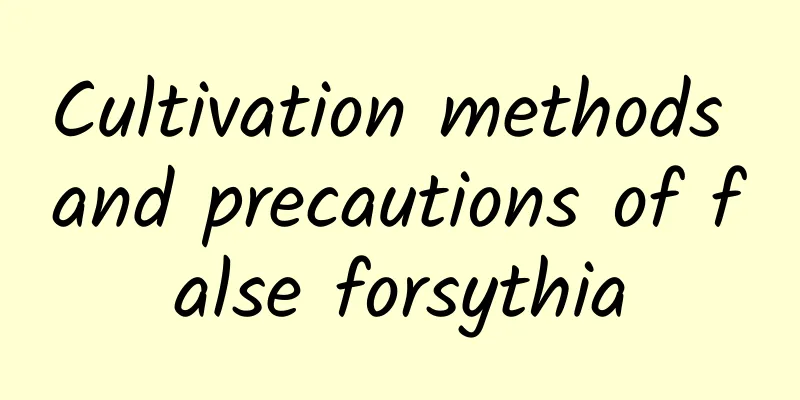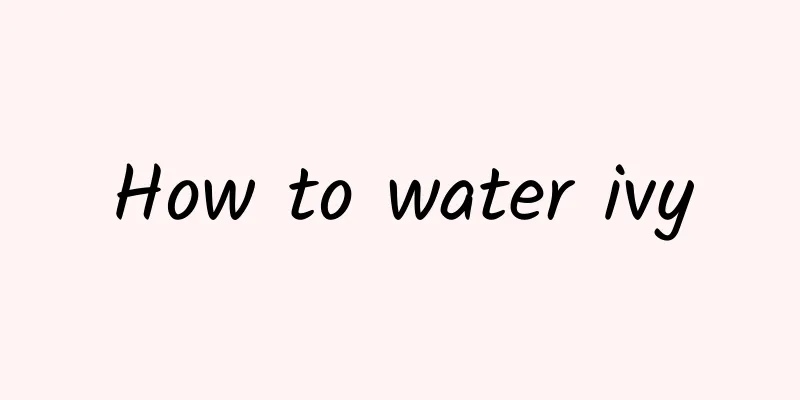When does jasmine bloom?

|
Jasmine is an evergreen shrub or small tree, famous for its white flowers and rich fragrance. It is often used to make perfume, scented tea and essential oils. It is one of China's traditional famous flowers. So when does jasmine bloom? Let’s learn more about it below. When does jasmine bloom? Jasmine usually blooms from May to August in summer, with the peak flowering period concentrated from June to August. In addition, under suitable conditions, jasmine can bloom several times a year, and the flowering period can sometimes continue until October or November. However, climatic conditions in different regions and differences in varieties may affect the specific flowering time of jasmine. How to care for jasmine during its flowering period? 1. Lighting management Jasmine likes light and should be exposed to sufficient sunlight during the flowering period, but it should be properly shaded at noon in summer to prevent strong direct sunlight from burning the leaves. 2. Moisture management Jasmine likes moisture, so pay attention to the water supply during the flowering period. During drought periods, water the plants promptly and thoroughly to keep the soil moist but not waterlogged. 3. Fertilization management Appropriate fertilizer should be applied during the flowering period to ensure the nutrient supply of the flowers. After the first flowering, it is advisable to use bean cake and other fertilizers as topdressing and apply them to the topsoil; when flowering, apply bone meal and phosphorus fertilizer as appropriate, and if conditions permit, use rotted human feces and urine to make the jasmine fragrant; fertilizer should be applied once every 4 days during the peak flowering period, generally water in the morning, fertilize in the evening, and dehydrate on the next day to facilitate absorption by the jasmine roots . 4. Pruning management When it first blooms in June, the small flowers need to be removed in time to encourage new branches to sprout. After flowering, the remaining flowers and branches and leaves under the flowers should be cut off in time to promote the jasmine to grow more branches and bloom again. 5. Pest and disease control Monitor the plants for signs of pests and diseases and, if necessary, use appropriate biopesticides to control them in a timely manner to keep the plants healthy. Jasmine, in general, is loved for its beauty and fragrance, and its flowering period is usually in the summer. Paying attention to maintenance and management during the flowering period can ensure that the jasmine grows healthily during the flowering period and produces more and more fragrant flowers.
|
<<: How long does it take to market beef cattle?
>>: In which month do chrysanthemums bloom?
Recommend
The efficacy and function of Gongli
1. Nourishes the lungs Gongli is a fruit that is ...
How to grow money grass in winter, what are the precautions
1. Breeding methods 1. Increase light: Moneywort ...
Does the copper green unicorn prefer shade or sun?
1. Do you prefer shade or sun? The copper green u...
How to grow water-cultured green radish to make it more vigorous? Pay attention to four points. Green radish grows wildly
The roots of the green ivy are slender and soft, ...
Chrysanthemum planting method and time
Chrysanthemum , as one of the top ten traditional...
“Clivia” is really beautiful when it is well cared for! Use these 3 tricks, and your house will also have small flowers in 2 months.
Clivia is a flower that is generally recognized a...
What vegetables are suitable to plant in December?
1. Spinach Spinach is a highly nutritious vegetab...
Agave cultivation methods and precautions
1. Breeding methods 1. Temperature: The most suit...
What is the best season to plant roses?
Rose is known as the queen of flowers and is a tr...
What herbs are suitable to plant in autumn?
Why is vanilla planted in autumn? Overcoming Weed...
What to do if hyacinth leaves turn black
1. Reasons 1. Frostbite Its bulbs are very cold-r...
Management methods for bougainvillea flowering period
1. Early management of long flowering 1. It likes...
Can figs be planted outside your home?
Can figs be planted outside your home? The fig tr...
What to do if the leaves of Crinum citrifolia turn yellow
Reasons why the leaves of Crinum orchid turn yell...
Do Buddhist beads prefer yin or yang?
Do Buddhist beads prefer yin or yang? Buddha bead...









